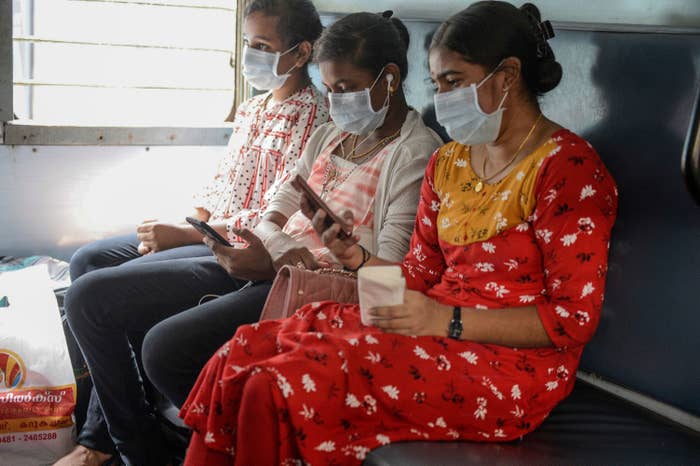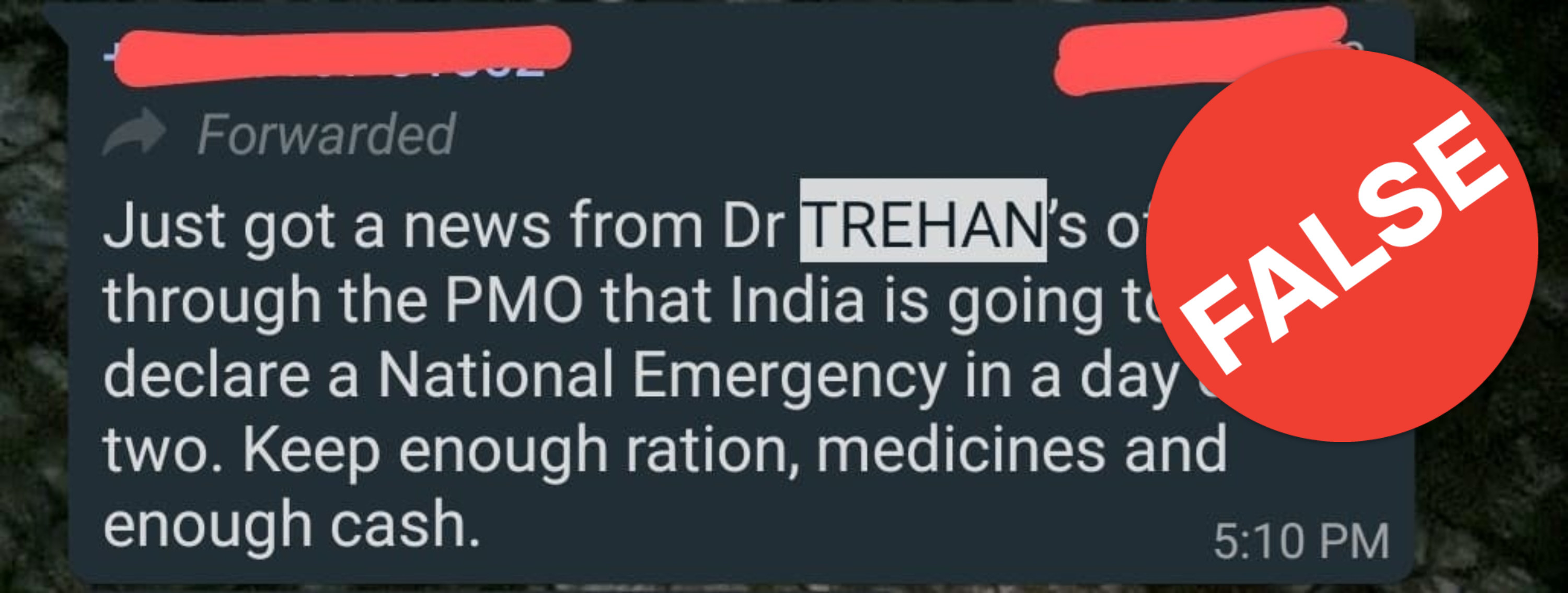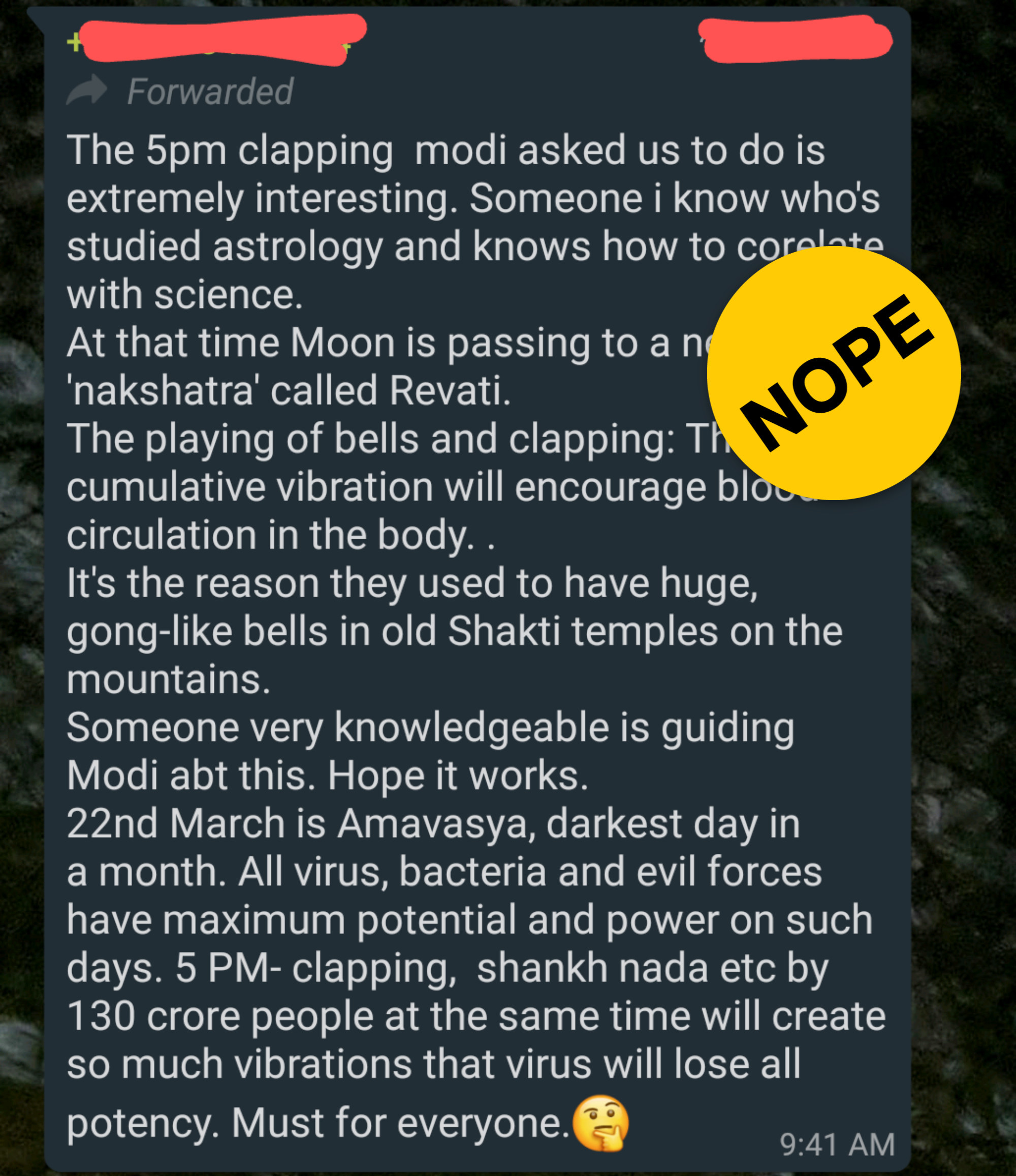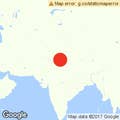
The journalists at BuzzFeed News are proud to bring you trustworthy and relevant reporting about the coronavirus. To help keep this news free, become a member and sign up for our newsletter, Outbreak Today.
NEW DELHI — It began with Winston Churchill. My otherwise lo-fi, chilled out, “Green living” WhatsApp group, whose members are women of various ages with a shared love for composting and plant photos, randomly brought up the British wartime leader a week ago with the quote: “Never let a good crisis go to waste.”
The crisis was the coronavirus, and Churchill, apparently, was supposed to be our guiding light in these dark, pandemic times.
“Although COVID 19 has tragically killed many worldwide, it has altered the global scenario for the better,” the WhatsApp forward began, asking all 34 of us to travel only when necessary, stop taking kids to malls, bathe more, pray, eat at home, read instead of watching movies, and let the economy and ourselves slow down.
“At times nature puts things in order and we must obey. Introspect!” It ended with an insouciant smiley that made me want to drop my phone into an open drain.

I typed out a response — a scream in text form: “For the most privileged among us, the coronavirus is an enforced staycation with the kids — for others, it has meant death, poverty, being stranded in foreign countries, not being able to see our parents and families when they are most vulnerable and a strange, unsettling loneliness with no end in sight. But hey! keep praising the dude who oversaw a famine in India that killed millions :)” But I never sent it.
Over this past week, the WhatsApp forwards have doubled, then tripled in number and bled out from Green Living to family groups, video calls with my mother, phone calls with my in-laws, chats with friends, Twitter and drawing room conversations. I feel less like screaming with frustration and more like crying, because I now recognize the misinformation and hoaxes about the coronavirus for what it’s really about: fear. The incomprehensible feeling that the world as we know it might come to an end, and no known cure will make it all go away. We reassure ourselves with the idea that the medicine for a disease the world’s best minds are trying to fix, lies on a kitchen shelf, or in a government warehouse, or a message on your phone that a neighbor passed along.
“Hot water and lemon kills cancer cells!” read one such text from an elder relative, who followed it up with another message: “no harm in taking this :),” possibly anxious that I would once again dig up links from the World Health Organization for him. I would’ve more likely sent him a link from the Indian fact-checking organization, Alt News, which has already debunked this and several coronavirus-related rumors online.
But it would not have made a difference, because all my conversations with my family this week have been gentle chidings telling me not to freak out. There’s no real need to worry because Indians have “higher immunity because we have been exposed to more anti-bodies than people in the west” and “coronavirus does not survive in warm weather.” Naively, I thought the problem was only boomers, but then one morning this week, a friend told me she was being invited to “anti-COVID smoking sessions” every day because someone in Goa had decided that the coronavirus hated weed.

I called Alt News’ founder, Pratik Sinha, to find out when the coronavirus rumors began to peak. He sounded tired — in the past months, Alt News’ tiny team has worked tirelessly to debunk rumors about India’s citizenship amendment act, rampant police violence against students, the Delhi riots and now, a global pandemic.
“The thing with misinformation is that it follows focal points in the news,” Sinha said. “India hanged four rapists today, from one of the most closely followed gang-rape stories in the world — but all that the people here are reading about online right now is COVID-19.”
Facebook-owned WhatsApp, which has more than 200 million users in India (its largest market) has previously told the Indian government it needs support from law enforcement and civil society to fight fake news and misinformation. In 2018, WhatsApp added a tiny “forwarded” label on all forwarded messages to control the spread of misinformation and added a limit to the number of people you could forward tests to, but misinformation continues to lead to violence and deaths in India.
In January, Sinha said, when news about the novel coronavirus was still focused on China, India saw a deluge of false WhatsApp forwards about Chinese police shooting people suspected of having the disease. The debunk of that video is one of Alt News’ most read news stories online. “Then slowly, as the disease became a global concern, the season of prophylactics and preventive cures began,” Sinha said, calling the Indian magic cure-all for all diseases, ginger, lemon, honey, and spices about as effective as a “tandoori chicken marinade.”
“We are now seeing more and more warnings — like the rumor about ibuprofen worsening corona symptoms, or a government advisory from a foreign country passing around as one of our own.”

In recent days, Alt News has published fact-checks on a mind-boggling array of rumors about the pandemic’s effects: from a major Indian milk brand closing its cooling centers due to the coronavirus to Saddam Hussein allegedly saying the US had threatened Iraq with the coronavirus and the rumor that all countries worst-affected by the virus lie along the 40-degree latitude.
“Misinformation always plays on the fault lines of our fears and deepest beliefs,” Sinha said, pointing to some of the rumors rife in an increasingly communalized India — that Muslim youth are refusing coronavirus testing for religious reasons, or the stigmatization of meat-eating by saying that meat-suppliers in west India have shut shop because cattle are infected with the coronavirus.
“It’s extremely worrying, because rumors about child kidnapping have led to lynchings for three consecutive years. The rumor about coronavirus affecting meat has destroyed poultry farming in Telangana (a state in South India).”
Another form of misinformation coming into its own this pandemic has been the spread of recorded phone calls, passed around as audio recordings on WhatsApp from famous doctors. “A lot of these recorded calls are just one person boasting — like he’s predicting apocalyptic scenarios, foreseeing the future of coronavirus or the economy — then someone forwards it claiming it’s from an expert,” Sinha said.
At least two Indian doctors, Naresh Trehan and Devi Shetty, both founders of multispecialty hospital chains have been falsely portrayed as having shared coronavirus-related medical advice via voice recordings. Shetty, contrary to WhatsApp and multiple news outlets, never shared the “day-to-day symptoms of coronavirus” telling people not to get themselves tested unnecessarily. A WhatsApp forward claiming to be from the “office of Dr. Naresh Trehan,” an Indian cardiovascular and cardiothoracic surgeon, claimed special knowledge that Indian Prime Minister Narendra Modi was going to declare a national emergency: “Keep enough rations, medicines, and cash,” the message warned. It was fake.

The scary part of coronavirus-related misinformation isn’t the people who believe it, it’s the lack of good information to counter it. Back in January, the Indian government itself falsely advised that homeopathy can help prevent and manage coronavirus symptoms, but natural medicines have not been proven to have any effect on the disease.
Modi addressed the country for the first time yesterday about the coronavirus, but his speech included nothing on government measures to curb the virus. The government is not, as my mother asked me yesterday, spraying cities from helicopters to kill the virus — a rumor that has apparently been floated in the UAE before.
@NishSwish Somehow this rumour was also adapted and shared in the UAE, too
In his speech, Modi asked for a “Janata Curfew” ("janata" means "people" in Hindi) — 14 hours of staying homebound on Sunday, March 22. Within half an hour of the speech ending, a relative sent me a forward about the curfew.

Modi’s other request, that people come out on their balconies and bang pots and pans together in appreciation for health workers every day, was described as “ancient Indian wisdom” in messages like this one:

“The world health org says coronavirus and SARS and MERS viruses, in fact, can last on surfaces for up to two days,” I began to type, then deleted, and typed again “coronavirus is not a bacteria it will not be killed by pots and spoons…” Deleted again.
I video-called the woman who sent the message instead to ask for a lunch recipe, then about her cat, the plants in the balcony, and what she was watching on Netflix. We stayed on the phone for a while. Maybe there were better ways to counter our fears than endless rumor-mongering and fact-checking on WhatsApp. Maybe it was really about the friends we’d been socially isolated from along the way.●

